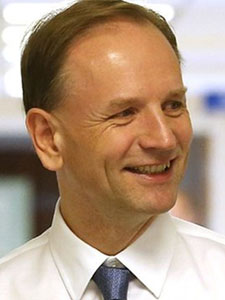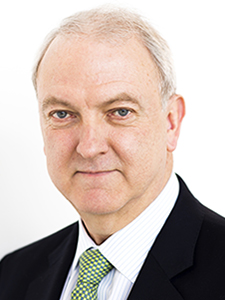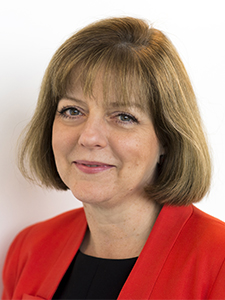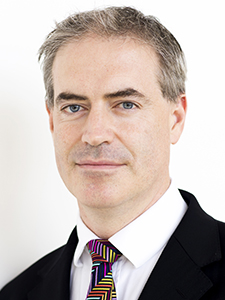We want everyone to have greater control of their health and their wellbeing, and to be supported to live longer, healthier lives by high quality health and care services that are compassionate, inclusive and constantly-improving.
NHS England shares out more than £100 billion in funds and holds organisations to account for spending this money effectively for patients and efficiently for the tax payer.
A lot of the work we do involves the commissioning of health care services in England. We commission the contracts for GPs, pharmacists, and dentists and we support local health services that are led by groups of GPs called Clinical Commissioning Groups (CCGs). CCGs plan and pay for local services such as hospitals and ambulance services.
We have devised a strategic vision for the NHS, along with our partners in health, called theFive Year Forward View. And now, with our partners, we are delivering that vision.
This vision shows that we are getting serious about prevention, identifying and delivering improvements in health care, redesigning the NHS so it continues to meet the needs of patients, ensuring the NHS is financially sustainable and engaging the public in this whole process.
We strongly believe in health and high quality care for all, now and for future generations.
NHS Commissioning

Over the past decade, the role of commissioning has become increasingly important to the health system in England.
At its simplest, commissioning is the process of planning, agreeing and monitoring services. However, securing services is much more complicated than securing goods and the diversity and intricacy of the services delivered by the NHS is unparalleled.
Commissioning is not one action but many, ranging from the health-needs assessment for a population, through the clinically based design of patient pathways, to service specification and contract negotiation or procurement, with continuous quality assessment.
There is no single geography across which all services should be commissioned: some local services can be designed and secured for a population of a few thousand, while for rare disorders, services need to be considered and secured nationally.
What has changed?
The NHS commissioning system was previously made up of primary care trusts and specialised commissioning groups. Most of the NHS commissioning budget is now managed by clinical commissioning groups (CCGs). These are groups of general practices which come together in each area to commission the best services for their patients and population.
Nationally, NHS England commissions specialised services, primary care, some public health services, offender healthcare and some services for the armed forces.
It has five regional teams but is one single organisation operating to a common model with one board.
CCGs and NHS England is supported by commissioning support units (CSUs). Their role is to carry out:
- Transformational commissioning functions, such as service redesign; and
- Transactional commissioning functions, such as market management, healthcare procurement, contract negotiation and monitoring, information analysis and risk stratification.
NHS England commissions a range of public health services as set out in the annual public health functions agreement (section 7a).
Find out more
Please see the following for more information:
About the Board
The NHS England Board consists of a Chair and eight non-executive directors and four voting executive directors. This complies with the requirements of the National Health Service Act 2006. A number of non-voting executive directors regularly attend Board meetings.
Find out more about our Board members.
Roles and responsibilities of the Board
The Board is the senior decision-making structure in NHS England. It provides strategic leadership to the organisation and, in support of that, it:
- sets the overall direction of NHS England, within the context of the NHS mandate
- approves the business plan, which is designed to support achievement of NHS England’s strategic objectives and monitors NHS England’s performance against it
- holds NHS England’s executive group to account for this performance and for the proper running of the organisation (including operating in accordance with legal and government requirements)
- determines which decisions it will make and which it will delegate to the executive
group via the Scheme of Delegation - ensures high standards of corporate governance and personal conduct
- monitors the performance of the group against core financial and operational objectives
- provides effective financial stewardship
- promotes effective dialogue between NHS England, government departments, other arm’s length bodies, its partners, clinical commissioning groups (CCGs) and providers of healthcare and communities served by the commissioning system.
We have set up a number of committees to advise and help us carry out our duties. Find out more about our Board committees.
Executive directors
NHS England’s Executive Group are:
Chief Executive
Simon Stevens

Simon Stevens is CEO of NHS England, which leads the NHS’ work nationally to improve health and ensure high quality care for all. As the NHS Accounting Officer he is also accountable to Parliament for over £100 billion of annual Health Service funding.
Simon joined the NHS through its Graduate Training Scheme in 1988. As a frontline NHS manager he subsequently led acute hospitals, mental health and community services, primary care and health commissioning in the North East of England, London and the South Coast. He also served seven years as the Prime Minister’s Health Adviser at 10 Downing Street, and as policy adviser to successive Health Secretaries at the Department of Health.
Simon also spent a decade working internationally at UnitedHealth Group, including as its Medicare CEO and as president of its global health division, leading health services in the United States, Europe, Brazil, India, China, Africa, and the Middle East.
Simon was born in Birmingham, and was educated at Balliol College, Oxford University; Strathclyde University, Glasgow; and Columbia University, New York where he was Harkness Fellow at the New York City Health Department. He is married with two school-age children, and volunteers as a director of the Commonwealth Fund, a leading international health charity. He has also been a trustee of the Kings Fund and the Nuffield Trust, visiting Professor at the London School of Economics and a local councillor for Brixton in South London. He is an honorary fellow of The Royal College of General Practitioners and holds an honorary doctorate from The University of Birmingham.
National Medical Director
Professor Sir Bruce Keogh
 Professor Sir Bruce Keogh is NHS England’s Medical Director and professional lead for NHS doctors. He is responsible for promoting clinical leadership, quality and innovation.
Professor Sir Bruce Keogh is NHS England’s Medical Director and professional lead for NHS doctors. He is responsible for promoting clinical leadership, quality and innovation.
Formerly, Sir Bruce had a distinguished career in surgery. He was Director of Surgery at the Heart Hospital and Professor of Cardiac Surgery at UCL. He has been President of the Society for Cardiothoracic Surgery in Great Britain and Ireland, Secretary-General of the European Association for Cardio-Thoracic Surgery, International Director of the US Society of Thoracic Surgeons, and President of the Cardiothoracic Section of the Royal Society of Medicine. He has served as a Commissioner on the Commission for Health Improvement (CHI) and the Healthcare Commission. He was knighted for services to medicine in 2003.
Twitter: @drbrucekeogh
Blogs: Read Bruce’s blogs
Chief Nursing Officer
Professor Jane Cummings
 Jane Cummings is the executive lead for maternity, patient experience and the professional lead for nursing and midwifery in England.
Jane Cummings is the executive lead for maternity, patient experience and the professional lead for nursing and midwifery in England.
Before progressing into general management, Jane’s nursing specialism was in Emergency Care. She has held a wide variety of clinical and managerial roles including Director of Commissioning, Director of Nursing and Deputy Chief Executive.
In February 2004, she became the National Lead for emergency care which involved working closely with clinical colleagues and NHS managers to agree and implement the 98% operational standard. She has also worked as the nursing advisor for emergency care, and with the Royal College of Nursing to develop the role of nurses and improve the experience and care of patients requiring urgent and emergency care. In January 2005, she was appointed as the National Implementation Director for ‘Choice’ and ‘Choose and Book’.
Jane moved to NHS North West in November 2007 where she held executive responsibility for the professional leadership of nursing, quality, performance as well as QIPP commissioning and for a time Deputy Chief Executive Officer. In October 2011, she was appointed to the role of Chief Nurse for the North of England SHA Cluster.
She was appointed as Chief Nursing Officer for England in March 2012 and started working full time in June 2012. Jane is the professional lead for all nurses and midwives in England (with the exception of public health) and published the ‘6Cs’ and ‘Compassion in Practice’ in December 2012, followed by publishing the ‘Leading Change, Adding Value’ framework in May 2016.
Jane was the Senior Responsible Officer for Learning Disability at NHS England until January 2016 and now has executive oversight of this area. In January 2016, Jane also became executive lead for Patient and Public Participation.
Jane was awarded a Doctorate by Edge Hill University and is a visiting professor at Kingston University and St George’s University, London.
She is also Director and trustee for Macmillan Cancer Support and a clinical Ambassador for the Over the Wall Children’s Charity where she volunteers as a nurse providing care for children affected by serious illnesses.
Twitter: @JaneMCummings
Blogs: Read Jane’s blogs
National Director – Operations and Information
Matthew Swindells
 Matthew joined NHS England in May 2016 from the Cerner Group and his role as Senior Vice President for Population Health and Global Strategy. He has over 25 years’ experience in health care services and has worked in the Department of Health as a Chief Information Officer and as a Senior Policy Advisor to the Secretary of State for Health. Prior to this he served as a Principal Adviser in the Prime Minister’s Office of Public Service Reform.
Matthew joined NHS England in May 2016 from the Cerner Group and his role as Senior Vice President for Population Health and Global Strategy. He has over 25 years’ experience in health care services and has worked in the Department of Health as a Chief Information Officer and as a Senior Policy Advisor to the Secretary of State for Health. Prior to this he served as a Principal Adviser in the Prime Minister’s Office of Public Service Reform.
Matthew began his career at Guys and St Thomas’ Hospital in the early 1990s, and went on to become Director of Clinical Services of Heatherwood and Wexham Park Hospital and later Chief Executive of the Royal Surrey County Hospital, in the early 2000s.
He is visiting professor and chair of the advisory committee in the School of Health Management at the University of Surrey and Member of the Editorial Board for the Journal of Population Health Management.
Blogs: Read Matthew’s blogs
Chief Financial Officer
Paul Baumann
 Paul Baumann is NHS England’s Chief Financial Officer, providing system leadership to the NHS in delivering best value and financial sustainability. The Finance Directorate, under Paul’s leadership, aims to provide a first class financial management service ensuring NHS England is well advised and provided with excellent financial services at all times.
Paul Baumann is NHS England’s Chief Financial Officer, providing system leadership to the NHS in delivering best value and financial sustainability. The Finance Directorate, under Paul’s leadership, aims to provide a first class financial management service ensuring NHS England is well advised and provided with excellent financial services at all times.
Paul is also providing interim leadership of the Transformation and Corporate Operations Directorate ensuring governance, organisation and corporate services are effective and support staff to deliver their objectives.
He joined NHS London, the Strategic Health Authority, in May 2007 after 22 years of experience of international financial management and strategic leadership at Unilever.
He was NHS London’s first Director of Finance and Performance and more recently held the post of Director of Finance and Investment. In this role he oversaw a significant financial recovery programme for London’s PCTs and Trusts and focused on the development of strategies to deliver long-term viability and sustainability across the London health economy. He is also executive lead for Devolution. and a Fellow of the Chartered Institute of Management Accountants.
National Director – Strategy and Innovation
Ian Dodge
 Ian Dodge joined NHS England in July 2014. His directorate leads the organisation’s work on: NHS strategy; sustainability and transformation; planning and implementing the Five Year Forward View; vanguards and the new care models programme; giving power to patients through personalisation and choice; commissioning strategy and development; and prioritising science and innovation.
Ian Dodge joined NHS England in July 2014. His directorate leads the organisation’s work on: NHS strategy; sustainability and transformation; planning and implementing the Five Year Forward View; vanguards and the new care models programme; giving power to patients through personalisation and choice; commissioning strategy and development; and prioritising science and innovation.
Ian was Director of the NHS Group and Head of Policy Profession for the Department of Health. In 2005/06 Ian was the Prime Minister’s senior adviser on the NHS. Ian is currently an Adjunct Professor at the Institute of Global Health Innovation, Imperial College, London.
Chair
Professor Sir Malcolm Grant CBE
 Malcolm Grant is Chancellor of the University of York, and immediate past President and Provost of University College London from 2003-2013. He is a barrister and a Bencher of Middle Temple.
Malcolm Grant is Chancellor of the University of York, and immediate past President and Provost of University College London from 2003-2013. He is a barrister and a Bencher of Middle Temple.
As an academic lawyer he specialised in planning, property and environmental law, and was Professor and Head of Department of Land Economy (1991-2003) and pro-vice chancellor (2002-2003) of Cambridge University, and professorial fellow of Clare College.
He has served as Chair of the Local Government Commission for England, of the Agriculture and Environmental Biotechnology Commission and the Russell Group.
He is currently a Trustee of Somerset House, President of the Council for At-Risk Academics, global chair of the PLuS Alliance, a director of Genomics England Ltd and a UK Business Ambassador.
Blogs: Read Malcolm’s blogs




